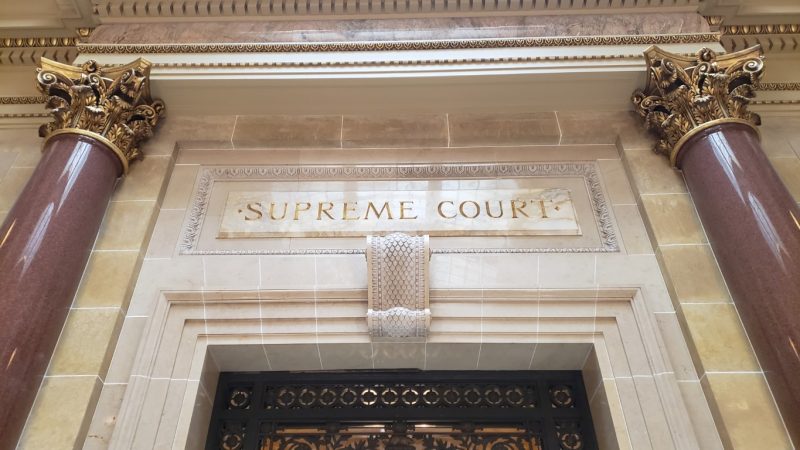The Wisconsin Supreme Court has rejected a challenge to “Marsy’s Law,” finding the constitutional amendment was properly presented to voters as they expanded the rights of crime victims.
The Wisconsin Justice Initiative Inc. and several citizens had challenged the amendment, approved via referendum in 2020, arguing it should’ve been presented to voters as multiple questions because it covered a string of changes that impact the rights of the accused.
But the court in a 6-1 ruling Tuesday upheld its past standard that only “amendments which have different objects and purposes in view” must be submitted separately.
“Employing this test, we have no difficulty concluding Marsy’s Law did not violate the constitutional prohibition on submitting multiple amendments as one,” Justice Brian Hagedorn wrote for the majority. “The amendment broadly protects and expands crime victims’ rights. This is plain from the text and history of its adoption.”
>> WisPolitics is now on the State Affairs network. Get custom keyword notifications, bill tracking and all WisPolitics content. Get the app or access via desktop.
Marsy’s Law for Wisconsin, which was created to help push the amendment through the Legislature and helped advocate for its approval via referendum, praised the ruling.
“Today’s decision by the Wisconsin Supreme Court removes any uncertainty about Marsy’s Law in our state and ensures future generations of Wisconsinites, who find themselves in the criminal justice system through no fault of their own, will have access to some of the strongest victims’ rights in the country,” the group said.
Liberal Ann Walsh Bradley dissented.
The ruling also underscored a split among the justices on originalism, which calls for interpreting the Constitution based on how it was originally written.
The disagreement is noteworthy because the justices laid down markers on how they believe the court should approach cases just as the majority is about to flip to 4-3 in favor of liberals once Justice-elect Janet Protasiewicz is sworn in this summer. That change could dictate which approach the court takes in its next term.
Conservatives Rebecca Bradley, Pat Roggensack and Annette Ziegler signed onto Hagedorn’s writing on originalism.
Meanwhile, liberal Rebecca Dallet wrote a concurring opinion rejecting originalism as the best approach for the court. She was joined in that view by Karofsky and Ann Walsh Bradley.
Dallet wrote she rejects the claim that the court’s settled approach to cases is originalism, arguing the court in recent cases has used “a more inclusive approach.”
“In my view, a more pluralistic method is needed to interpret faithfully the Wisconsin Constitution (or the United States Constitution for that matter),” Dallet wrote. “Under such an approach text and history of course matter, but so do precedent, context, historical practice and tradition.”
Hagedorn wrote in his opinion that the court should interpret “what the constitutional text meant when it was written.”
“In short, our solemn duty in constitutional interpretation is to faithfully discern and apply the
constitution as it is written,” he wrote. “What the constitution says, it says. What it does not say, it does not say.”
While Ann Walsh Bradley joined much of Dallet’s concurring opinion, she didn’t side with the view her colleague espoused in that writing that the amendment was presented to voters appropriately.
Read the decision:
https://www.wicourts.gov/sc/opinion/DisplayDocument.pdf?content=pdf&seqNo=656770
In a separate 5-2 ruling Tuesday, the court cited “Marsy’s Law” in overturning a 1993 appeals court decision that had created a process by which a criminal defendant could gain limited access to a victim’s private health care records.
The past standard allowed an “in camera review” — or a limited review by the court — despite statutory provisions that otherwise bar disclosure. That standard required a defendant to show a reasonable likelihood that the records are not cumulative and are necessary to a determination of guilt or innocence.
But the court overruled it on three counts, including the protections for the rights of victims included in Marsy’s Law. The court also found the standard for obtaining access to the records as unworkable, among other things.
Justices Ann Walsh Bradley and Annette Ziegler dissented.
Read the decision:
https://www.wicourts.gov/sc/opinion/DisplayDocument.pdf?content=pdf&seqNo=657526




